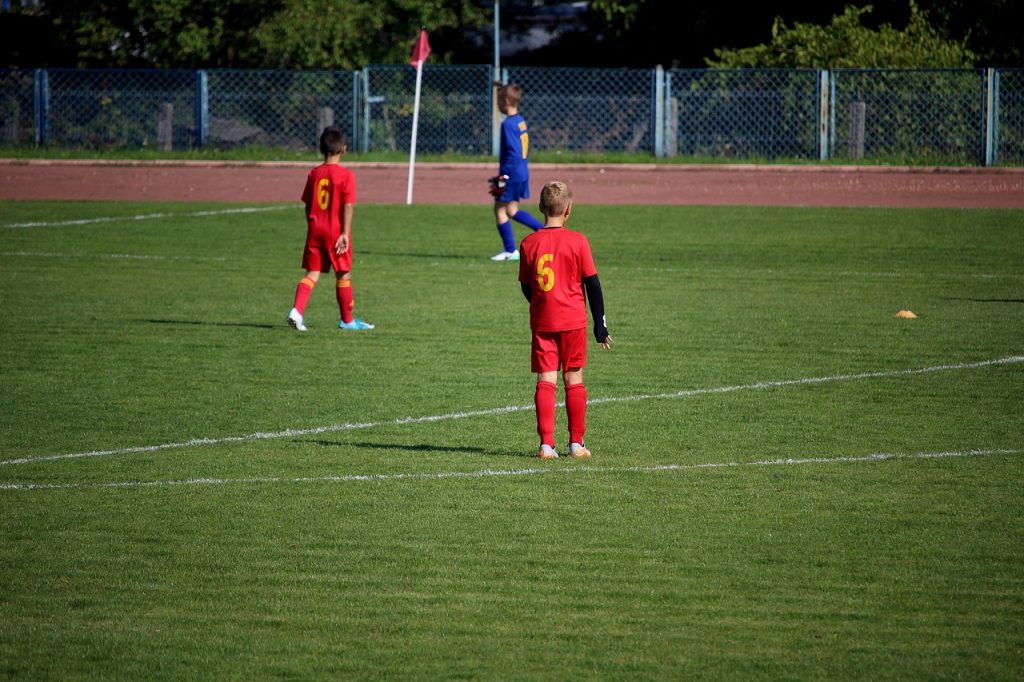The Power of Participation: Unveiling 35 Benefits of Extracurricular Activities for Kids

Extracurricular activities have long been recognized as an essential component of a child’s holistic development. While academics provide the necessary foundation, engaging in activities beyond the classroom setting offers a myriad of advantages that shape a child’s character, intellect, and social skills. In this comprehensive blog post, we will delve into 35 significant benefits that extracurricular activities bestow upon kids, providing parents and educators with a compelling understanding of their pivotal role in a child’s life.
1. Academic Benefits
Improved Academic Performance
Participation in extracurricular activities has been linked to enhanced academic performance. Children who engage in such activities often exhibit better focus, time management, and organizational skills, which positively influence their studies.
Better Time Management Skills
Balancing school, homework, and extracurricular activities teaches kids valuable time management skills. This skill set becomes increasingly crucial as they progress through their academic years and into adulthood.
Enhanced Problem-Solving Abilities
Engaging in various activities exposes children to diverse challenges, honing their problem-solving skills. Whether it’s a chess club or a science fair, these experiences encourage analytical thinking and creativity.
Increased Motivation to Learn
Children who actively participate in extracurricular activities tend to exhibit higher motivation to learn. Pursuing their interests outside the classroom often sparks curiosity, leading to a proactive approach to education. (Credits to American Psychological Association)
2. Social Benefits
Improved Communication Skills
Extracurricular activities provide a platform for children to interact with peers and mentors, honing their communication skills. Effective communication is crucial for success in both personal and professional spheres.
Development of Teamwork and Cooperation
Activities such as team sports and group projects foster teamwork and cooperation. Learning to work harmoniously with others prepares children for collaborative efforts in future endeavors.
Enhanced Leadership Skills
Participating in clubs or societies often offers opportunities for leadership roles. Nurturing leadership skills from a young age equips kids with the confidence to take charge and make a difference.
Building Friendships and Social Networks
Extracurricular activities create environments where lasting friendships are forged. These relationships provide emotional support, enhancing a child’s overall well-being. (Credits to Child Development Institute).
3. Emotional Benefits
Boosted Self-Esteem and Confidence
Success and recognition in extracurricular activities boost a child’s self-esteem and confidence. These positive experiences contribute significantly to their self-worth.
Stress Reduction and Relaxation
Engaging in activities they love offers children an outlet to relieve stress. Whether it’s painting, playing music, or dancing, these activities provide a sense of relaxation and joy.
Improved Emotional Intelligence
Interacting with diverse groups of people in extracurricular settings enhances emotional intelligence. Understanding and managing emotions are vital life skills that extracurricular activities help cultivate.
Sense of Belonging and Acceptance
Being part of a team or a club provides a sense of belonging. Feeling accepted and valued by peers and mentors fosters a positive self-image. (Credits to Greater Good Magazine).
4. Physical Benefits
Encourages Physical Fitness and Active Lifestyle
Sports and physical activities promote a healthy lifestyle, reducing the risk of obesity and related health issues. Regular exercise also boosts overall energy levels.
Enhances Motor Skills and Coordination
Engaging in activities that require physical coordination, such as dance or martial arts, refines motor skills and enhances hand-eye coordination.
Promotes Overall Health and Well-being
Regular physical activity improves cardiovascular health, strengthens bones and muscles, and enhances overall well-being. It also contributes to better sleep patterns and mental health. (Credits to Centers for Disease Control and Prevention).
5. Creative Benefits
Stimulates Creativity and Imagination
Participating in creative activities like art, music, or drama stimulates creativity and encourages children to think outside the box. Creative expression is vital for personal and intellectual growth.
Provides a Platform for Self-Expression
Creative activities provide a means for children to express their thoughts, emotions, and ideas. This outlet is particularly essential for those who find it challenging to communicate verbally.
Develops Artistic and Creative Talents
Nurturing artistic talents from a young age can lead to lifelong passions and even careers. Extracurricular activities provide the necessary training ground for budding artists, musicians, and performers. (Credits to National Endowment for the Arts)
6. Career-related Benefits

Exploration of Potential Career Interests
Extracurricular activities offer a glimpse into various fields of interest. Whether it’s coding clubs, debate teams, or robotics competitions, these activities help children explore potential career paths.
Development of Transferable Skills for the Future Workplace
Skills such as communication, teamwork, leadership, and time management acquired through extracurricular activities are highly transferable and valuable in the workplace.
Provides Valuable Experiences for College Applications and Resumes
Colleges and employers value well-rounded individuals. Active participation in extracurricular activities enhances a child’s resume, showcasing their diverse skills and interests. (Credits to U.S. News & World Report).
7. Cultural and Global Awareness
Exposure to Diverse Cultures and Perspectives
Participating in cultural clubs or exchange programs exposes children to diverse cultures and perspectives, fostering cultural understanding and tolerance.
Fosters Understanding and Tolerance Among Different Communities
Interacting with individuals from different backgrounds encourages empathy, understanding, and tolerance. These experiences lay the foundation for a more inclusive society.
Encourages Global Awareness and Empathy
In today’s interconnected world, global awareness is crucial. Extracurricular activities that involve international collaboration or community service promote empathy and a sense of global responsibility. (Credits to UNESCO).
8. Discipline and Responsibility
Teaches Discipline and Commitment
Regular participation in activities requires discipline and commitment. Meeting practice schedules and fulfilling responsibilities instills a strong sense of discipline.
Encourages Responsibility and Accountability
Being part of a team or a club comes with responsibilities. Children learn to be accountable for their actions and commitments, fostering a sense of responsibility.
Cultivates a Strong Work Ethic
Learning the value of hard work and dedication through extracurricular activities instills a strong work ethic that serves children well in their future endeavors. (Reference: Psychology Today).
Conclusion
In conclusion, the benefits of extracurricular activities for children are immeasurable. From academic excellence and enhanced social skills to emotional well-being and global awareness, these activities shape well-rounded individuals ready to face the challenges of the future. As parents and educators, it is our responsibility to encourage and support children in their extracurricular pursuits, recognizing the transformative power these activities hold. By embracing the holistic development that extracurricular activities offer, we pave the way for a brighter, more promising future for the younger generation. So, let us champion the cause of participation, empowering our children to explore, learn, and grow through the myriad opportunities extracurricular activities present.




